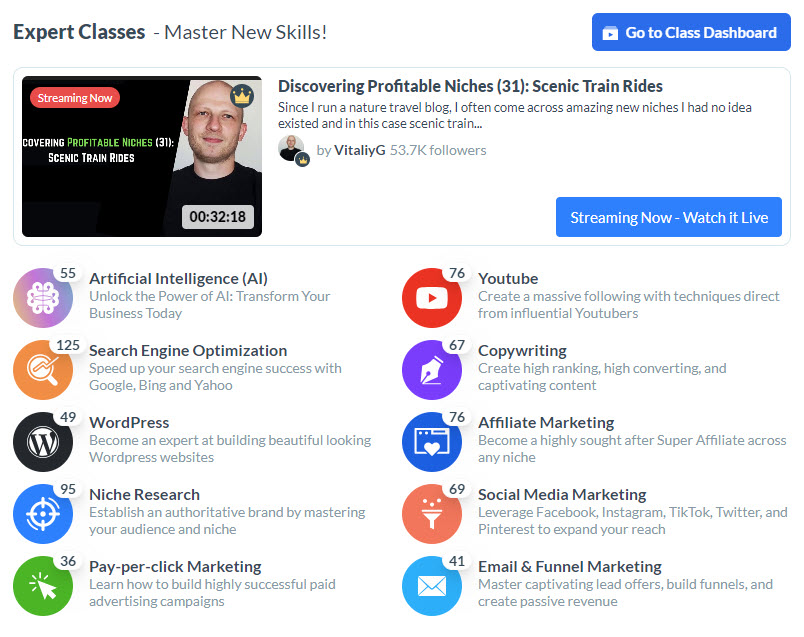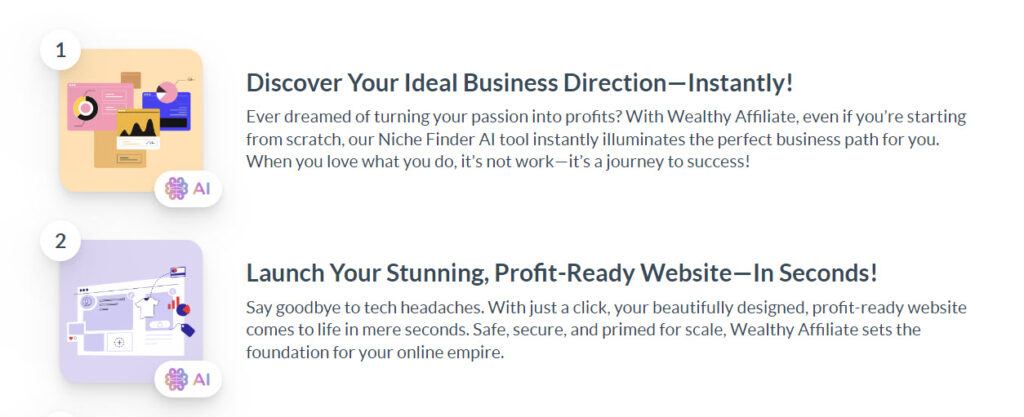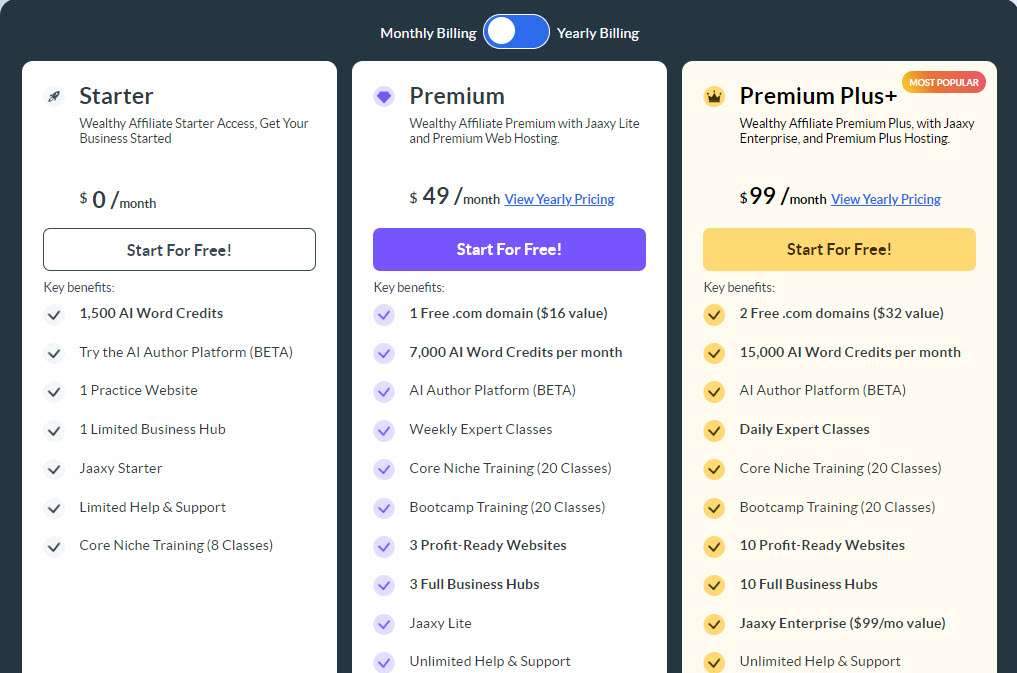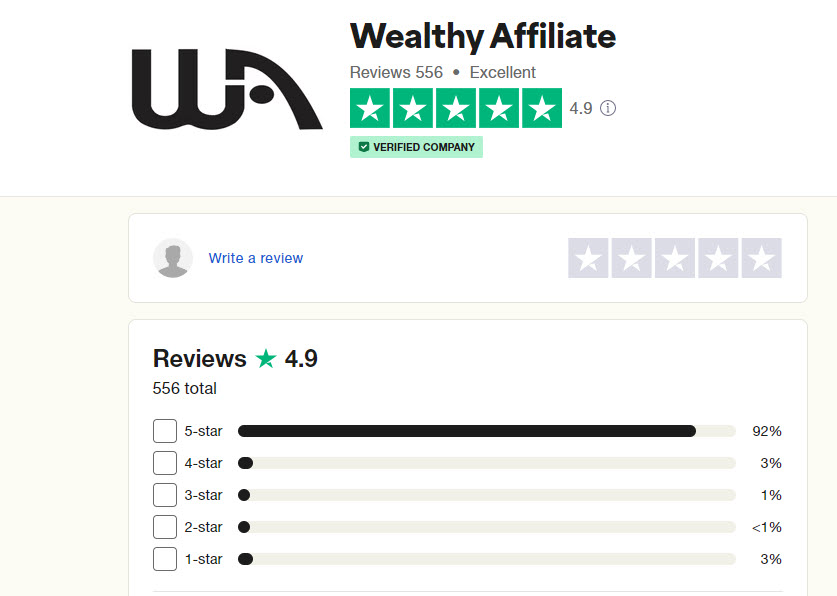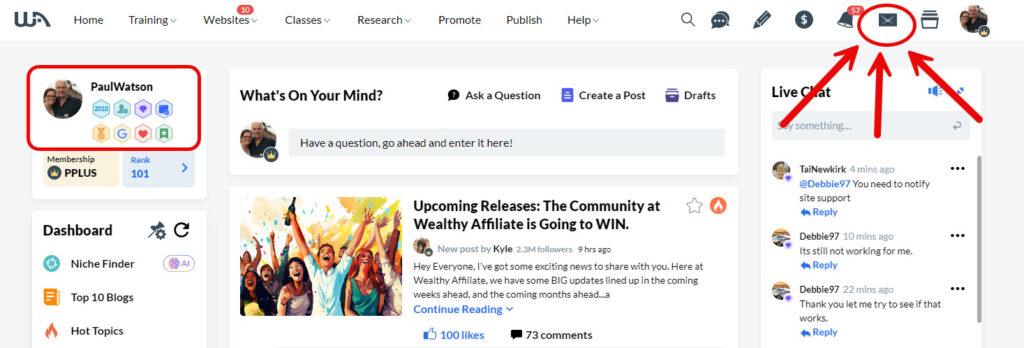Hey there Sea Changers and welcome back to my series of posts outlining ways and means to create yourself an online business to fund that sea change. Today's topic on how to sell beer online is to be honest one that I have been looking at for a while and a niche that I may even get into myself one day. My interest is personal as I love a good craft beer hence would be working with a passion but I also have a few friends who brew their own beers with fastidious attention and care.
I have noticed that many of them purchase their gear and ingredients online so I am thinking that there just may be a market here as well. So, can you make money selling beer online? Let's check it all out…
How do we get started?
I did some research… did you know that the global population managed to put away 188.79 million kilolitres (equivalent to approximately 298.2 billion 633 ml bottles) of golden ale goodness in 2018? And the largest beer drinking country in the world? It might not be who you think…
So that should mean that there is a good market for beer and beer related products online hey? Well I would hope so however I would hate to get you started here and then find out that even though a lot of us like a good drop of beery goodness, none of us are interested in purchasing anything to do with it online. So, as usual, let's check the numbers…
Oh, but before we do… the largest beer consuming country in the world?…. China – for the 16th year in a row.

What are people looking for?
To start let's just confirm our market numbers:
1. Number of monthly searches
As we are looking to see if there is an interest in beer related products and services online, let's start by checking for purchase related searches. You will need to find yourself a good keyword tool (I use Jaaxy) and enter in the keywords that best describe your market. In this case, we will start with the basics:
Ok, that's pretty good – 62,000 odd searches per month – and we can also use this information to start to get a few niche ideas there with large number of searches for beer gift baskets, a couple of brands and beer bread – maybe a good post idea there. This is great to know in regards to interest within this niche however let's break it down a little further:
Yep, safe to say there is an interest there – especially on such a direct search. We can also see the array of searches here (the term ‘Beer Brewing' also commands around 3000 odd searches per month). But just to finish up, I always like to play around a bit with these and I was most interested in the following results:
I added this one as this is what we often give as gifts within our circle of friends – it is sort of a tradition now – and again, in this hobby/gift type niche, it definitely shows a variation of subjects to cover.
2. Search Trends
Another important aspect of online sales and niche selection is to check that interest is maintained over time. To gain an insight into this let's check out how the searches for beer related products are trending.

Ok, so we can see that interest has been maintained fairly well over the past few years with what I would guess to be holiday period spikes. All in all, I really see a good opportunity here.
That's right! Wealthy Affiliate provided me with all of the tools and training I needed to get this post in front of my audience - a.k.a YOU!
You too can start your very own online business here that can make you money from anywhere in the world!!
What is our niche?
Ok, now the fun part begins – In the statistics and screen dumps above, we can already see some of the interest in different niches within the beer market. The decision you have now is to determine whether you wish to create your online business covering beer in general or concentrate on a specific area or sub niche. There are a good number of different areas you could explore here – and off the top of my head, some examples include:
- Beer- General.
- Beer types – Lager, Stout, Pilsner, IPA etc.
- Beer brands – Corona, Becks, Guinness etc.
- Organic, Gluten Free or Vegan beer.
- Alcohol Free Beer.
- Beer glasses.
- Beer brewing.
- Beer baskets and gifts.
- Beer tasting.
- Beer science and testing.
- Craft beers.
- Cooking with beer.
And that is just some off the top of my head – all of which can be marketed from the point of view of the writer, or simply as a means of supplying information to those looking to purchase. I tend to think that a few of the above areas could be incorporated into the one site however as you start to think about this, the question to ask yourself is whether the content you are covering is too large to cover effectively.
The risk here is that if you start with a niche that is too broad, you may not be able to cover everything to the level required or to become authority on the subject – which you will need to be if you are going to convince people to purchase from you and not their local liquor store. Don't forget, you can always add a new section to your site as you grow as well.
As you work through narrowing your targeted niche, consider the following:
- Are you able to solve a problem – Most people undertake searches on the internet to solve a problem – see next section.
- Is it a subject that you have an interest, or knowledge in– I am guessing that you are in this post as you know about, or have an interest in beer. If you don't have either of these, maybe consider another market as to be honest, you might struggle to produce solid content if you don't know much about it. Trust me, people will know immediately if your information is not up to scratch or even worse, can put their enjoyment of a good beer at risk.
Let's investigate this a little further by discussing the problem solving elements of niche selection.
[elementor-template id=”3325″]
What problem are we solving?
If this is a niche that you are interested in, you may already know what it is that you are trying to sell. If not, then maybe start to look at it from the perspective of solving problems. This, added to your area of interest is a great way to work out exactly what you think you might like to base your online business upon.
Think about your own search behaviours when you are online – I would hazard a guess that most searches you do are in order to solve a problem. Now think of this in a manner in which someone might have problems within the greater beer niche such as:
- You know that you want to buy some award-winning craft beers as a gift for a friend but don't know which is the ‘best'.
- You have a problem and need a solution – I.e. “I want to brew beer at home, but I don't know where to start”.
Your goal here is to determine just what problem/s you are trying to solve for your readers. This maybe one problem that spans your site or differ for each post that you write. For example, if you have chosen beer consumption for your niche, then problems might be:
- Matching products to use– They want to know what beers would be best to enjoy with barbecue food.
- Which to buy – There are a number gluten free beers on the market – but which is best?
In these cases, people would be searching for those topics based on having a problem and needing a solution. Your site would outline and review the best options for them.
Let's revisit out home brewing issue above – then you could look into the following:
- What home brew kits are best?
- How should raw products are best and how should they be stored?
- What accessories are needed?
- Should you consider a particular brand?
- When is the best time to brew?
- How long do they need before they are ready to drink?
Note: You do not need to identify every possible problem that your readers may have straight away. In many cases, the more you write, the more ‘problems’ will present themselves so initially you really just want to make sure that there are some that may need solving as we have found here.

How are you going to convince them to buy?
Now that we know our niche (or are at least working on it) and have an idea of the types of problems that we want to solve, there is one last thing to consider which is the online purchase behaviour of your targeted audience.
The first thing you would need to consider is exactly who will be looking at your site. The first group that comes to mind are the home brew aficionados (this is probably a better word than ‘fanatics') – those who like to know all about their beers and how they can tweak the tastes. But what about social beer drinker who just wants to get themselves a decent craft brew for that dinner party or night in the man cave? Oh, and don't forget the hobbyists – they will want to know what they are getting with each purchase. Your sales/post pitches not only need to match the needs and problems that your site visitors are looking to solve, but also target them specifically as well. Some examples include:
- Those that are new to the world of purchasing beer online will want to know exactly what they are getting and why it is better value for them.
- The avid beer connoisseur will want detailed tasting notes – they will dissect your reviews with a fine toothed comb.
- Home brewers will want to the best ingredients they can get for the price. And we all know what a bad beer can do to their (often self-appointed) reputation – Yes, I am talking to you here Mitch…
So at the end of the day, even though we do have purchaser behaviour on our side, to be successful in selling beer related products online, consider the following:
- Solve problems without purchase – That's right – write your posts in a way that actually makes it easier for people to do their research and buy elsewhere – by doing this, you are solving problems and helping readers out. If they trust you, they will be more likely to return next time and buy from you then – especially if you follow up with posts on similar or compatible products or accessories that might interest them!
- Provide the intangibles – One major disadvantage when it comes to selling anything online is that we can't really know what the products look, feel, smell and taste like. And this is especially important when it comes to beer – after all, we can't always taste it first and words such as ‘hints of passionfruit' and ‘bitter aftertaste' can mean different things to different people. Your posts will need to cover this information in a manner that puts minds at ease and explains some of the intangibles.
- Know your audience – A big mistake many make here is to target the product and not necessarily the buyer. This is especially important when dealing with a budget minded audience. It is very easy for example to get carried away explaining how great a home brew kit is because it is cheap all the while forgetting that those intending to buy it are not living in a warm environment. The same goes for high end options… Expensive doesn't always mean better tasting. Make sure you do your research on the buying behaviours of those you are targeting before writing your posts.
Tip: Still not sure? Have a look and see what others are doing. It might just help you with some ideas.
Legal implications
This is not usually a section that I add to my “How to Sell…” posts, but in this case it is definitely something to be aware of and take into consideration. This is because even though beer is a commonly sold online commodity, it is still alcohol meaning there are numerous jurisdictional implications to be considered as you look to set up your online beer business. In fact, many home brew kits will actually stipulate on their packaging that they are not intended for use with alcohol just so that they can sell them in supermarkets without a liquor license.
The obvious advantage you have here though is that online marketing has no real geographical boundaries so you can still create a successful site where most of your sales are managed within another country – and especially within the affiliate marketing space where you are not having to physically process the alcohol sale yourself. For some of the sales options listed below however, regulatory requirements such as liquor licensing and age limitations will need to be considered and managed.

How do we sell beer online?
And now we come to probably the most important aspect of this whole online selling caper in that we need to consider how we are going to sell the products that we have decided to promote. Depending on the product, there are a number of methods you can use to do this.
Note: the options below are all subject to the legal implications outlined in the section above. Always check your options before setting up any beer related business within the online world.
Let's explore them below:
Affiliate programs
Affiliate programs are setup directly by companies or marketplace platforms (Amazon, Ebay etc.) that allow you to join and then refer traffic to them via customised affiliate links. In short, this means that you will write about beer and then refer your readers to a link where they will purchase directly from the vendors. The vendors then pay you a commission for the sale.
Affiliate programs are especially good for those selling beer and their accessories online as you can move seamlessly through changes to taste and seasonal products without needing to purchase and store the stuff yourself. This way you can promote/review the products that meet your target audience preferences and then refer your readers to the vendor to manage the sale. They also often manage the legal implications for you as well – i.e. they will hold relevant liquor licensing and control where you can sell to etc.
Finding affiliate programs is generally not a difficult task either. To locate them, you would normally just type “Affiliate: beer” into your preferred search engine:

So, as you can see, there are plenty of options in regards to affiliate programs for beer related niches. As you search through them all, you can check it all out and find programs that:
- Relate to your niche/problems that you are solving.
- Have quality products – your brand can be severely damaged if you promote poor quality or unsafe products.
- Have solid payment and customer service arrangements.
- Pay decent commissions.
- Have good testimonials covering commission payouts and quality of product.
- Whether they have high ticket items you can promote on the side.
In most cases, you will need to apply for the program before you are allowed to promote their products – don’t take this step lightly or you will be rejected. Affiliate programs will generally want to know:
- Your website name.
- Traffic levels.
- Why you want to join – (“so I can make money by selling your beer mugs” is unfortunately not generally a good enough answer).
- How you plan to promote their products.
One thing to be aware of here I guess is to keep in mind the issues we discussed earlier in regards to beer related products online. You need to make sure that the programs you choose can be trusted and that the consumer is comfortable that they have recourse if something goes wrong. For this reason you will need to make sure that your chosen programs are going to resonate with your readers and your niche.
That's right! Wealthy Affiliate provided me with all of the tools and training I needed to get this post in front of my audience - a.k.a YOU!
You too can start your very own online business here that can make you money from anywhere in the world!!
Dropshipping
Dropshipping is something that may be of advantage to you in this niche if you are looking to play with pricing on your products. This process is similar to affiliate marketing in that you are generally promoting the products of others without the need to actually hold any inventory. With affiliate marketing, you are paid a commission on whatever price the vendor sets but do not manage any customer service, sales processes or post sales requirements. The main difference with dropshipping is that you perform the following (there are a number of variations to this but this is the guist of it):
- Strike a relationship with a wholesaler.
- Promote the product for whatever price you see fit – see below.
- Manage the sales processes and customer service.
- Send the final order and payment to the wholesaler for packaging and shipping.
The money that you make is effectively the difference between whatever you managed to sell the product for and the wholesale price that you owe the vendor. The other advantages of dropshipping over affiliate marketing is that:
- You own the customer list – which is another means of building an effective email list.
- You control the cost of the product and hence the profit margins.
- You can control when you put things on ‘sale', group them in packages or increase the price for high demand items.
The disadvantages however are the extra workload in handling payment and any ongoing customer service requirements.
To find dropshipping suppliers online, you can enter searches such as “dropshipping: beer” into your favourite search engine:

Note: These results will usually be based on your geographical location.
From here you can search through and find programs that:
- Offer dropshipping services – Not all product suppliers offer dropshipping as a service – this may just mean that you need to organise the shipping yourself after it is delivered to you.
- Have experience and are helpful – If they are not helpful and/or appear inexperienced then you can expect the same when you are trying to process sales.
- Have acceptable fees – most dropshipping wholesalers will charge a small fee for the dropshipping service – just make sure it is not so high that it eats into your profit margins.
- Provide fast shipping – One disadvantage with dropshipping when dealing with vendors is that the customer is yours, not theirs hence sometimes shipping priorities are not where they should be – make sure shipping times are acceptable.
- Have quality products – as with affiliate marketing, don't sell rubbish.
- Have a good name – do your research and see what others are saying about them.
Dropshipping does contain some grey areas when it comes to the legal implications of selling beer online. As you are technically selling the product, some discussions with suppliers might be required to ensure all avenues are covered.
Sell your own
If affiliate marketing or dropshipping are not to your taste (see what I did there), then maybe you could try sourcing and selling your own products – often referred to as White Labeling. This process is especially popular within this market and could be potentially great if you wanted to become a purveyor of fine home brew ingredients or fancy mugs etc. Also, some brewing companies will actually brew product for you based on your specifications as well. From here you actually purchase your product from a vendor or wholesaler, add your own label and then on-sell them via your website or relevant platforms.
This process requires a much higher setup costs as you will need to purchase your products, create and affix your labels and manage orders and shipment. Some wholesalers/vendors however will affix the labels that you send them and then manage the packaging and shipment for you (see dropshipping above). This will cost you less to set up but obviously you will make less on the sale once they take their processing fee.
Note: If you are planning to sell your own beer, you will need to check all legal regulations within your sales jurisdiction/s.
Again, to find out where to acquire your product, do a search for “white label: beer”:

Note: These results will usually be based on your geographical location so you may at times need to sort through a few pages.
From here you will need to follow the same processes as with affiliate and dropshipping programs in determining whether they are a good fit for your business plans including:
- Relate to your niche/problems that you are solving.
- Have solid delivery and customer service arrangements.
- Have good testimonials covering service and quality of product.
Alternatively, keep your eye out in your local area for markets or food carnivals. These are a great way to find and purchase your products at good prices – you never know, you might even find a solid supplier for future sales as well.
Tip: This method can be very effective in driving online traffic and sales via the implementation of more traditional sales methods such as kiosks and market stalls etc. As people get to know you, they can purchase from you there and then be directed to your website for future sales.
Apart from white labeling, there are a few other options available if you are looking to sell your own products. These include:
Offer a Service – This is where you perform a task that assists those within this niche such as:
- Home Brewing – either by doing it yourself or teaching others to do it.
- Manufacture – make or repair bar furniture for example.
These services can be offered in person or demonstrated online via an online course or on YouTube.
Build your own and sell – if you are more on the handy side, then make your own products and on sell them. This could be absolutely anything such as bar furniture, decorative items (beer related pictures, clothing etc.) or cleaning solutions for home brew kits for example. Items can be made and then sold via a website or marketplace platform such as Amazon or Shopify.
What do we need to do?
Once we have all of the above sorted, or at the very least a plan in place, we need to choose and setup the media that we intend to use to sell our product. This can include:
Build a Website
If you are looking to build your online business as an affiliate marketer, dropshipper or supplier, then chances are you will most probably need a website. Websites allow you to solve problems via blog posts and videos that people can view in order to identify the solutions that they need. Usually, this process is fairly straight forward in that you build your website, write posts (on the differences between certain types of beers for example), then provide links so that your readers can view/purchase the relevant materials from your links.
That's right! Wealthy Affiliate provided me with all of the tools and training I needed to get this post in front of my audience - a.k.a YOU!
You too can start your very own online business here that can make you money from anywhere in the world!!
Promote on Social Media
When it comes to beer, there is a good chance that many lovers of a fine ale are reading social media whilst they drink it. It has the power to reach thousands and allows you to target specific segments if you choose the correct platform. In terms of beer related products online, a good platform to start with is FaceBook where you can discuss items with your audience, display products in use and show videos.
However, if you are looking to set yourself up as an expert within the niche, then Instagram and YouTube will be your absolute best friend – some even use these platforms without a website. These are great for visuals such as pictures and/or videos showing you discussing, brewing, pouring and drinking beer etc. And, if you are able to build a following you may even get noticed and be paid gazillions to review beer brands within your videos – this takes time, but it does happen…
Note: Most social media platforms do not allow alcohol sales directly on their sites – you will need to be careful to link back to your own website posts and not to any sales pages.
Join like-minded groups
Anther great tool when it comes to selling products online are social groups. By getting involved with these groups you can really get a great understanding as to what its members are struggling with, what information they seek and what products they are looking to buy. Below is an example of beer related FaceBook groups (results are geographical so will vary dependent upon location):
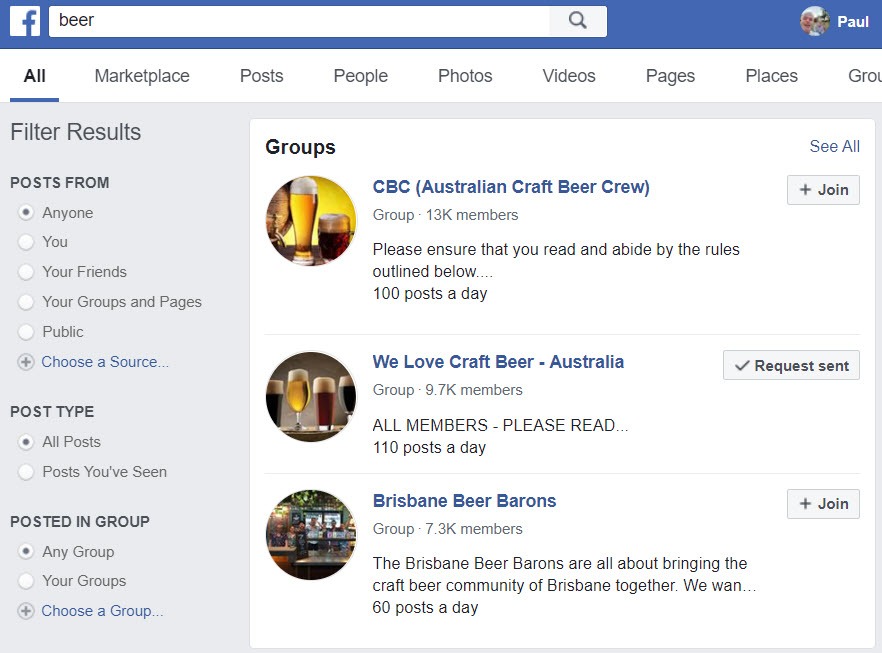
Note: Many of these groups will not allow you to spruike or promote your sites directly, however if you can interact and demonstrate your knowledge then people will ask you directly for the information. At the very least, as above, it is a great way to get ideas and insight into what people in this area really want to know about and what they are buying online.
FAQs
What are the legal considerations for selling beer online?
Selling beer online is a unique business venture that requires adherence to specific laws and regulations that may vary by country, state, or region. Before beginning to sell beer online, it is essential to understand both the federal and local legal requirements surrounding alcohol sales and distribution. These might include acquiring the necessary licenses and permits, ensuring that the sales are made to individuals of legal drinking age, and understanding the taxation structures specific to alcoholic beverages. In some jurisdictions, there may be restrictions on the types and amounts of beer that can be sold online. Consulting with a legal professional specializing in alcohol laws is often recommended to ensure full compliance with all applicable laws and regulations.
Conclusion
And there it is – How to make money selling beer online. I hope it has been helpful and as usual, please do not hesitate to comment below if you have any questions, need some advice or have any experiences to share.
Do you want further assistance with any of the above or need help to build your own beer related website?
Are you looking for a comprehensive training platform that can give you step by step training, 24/7 support, tools to develop and host your very own website, ongoing assistance with SEO and social media and access to some of the best affiliate marketing minds on the planet, then click on the following link to read more about Wealthy Affiliate.
Until next time
Have fun
Paul
Note: If you make a purchase from this page, there is a very good chance that I make a commission from it – these commissions do not increase your sale price. This may include sales made via Wealthy Affiliate.









